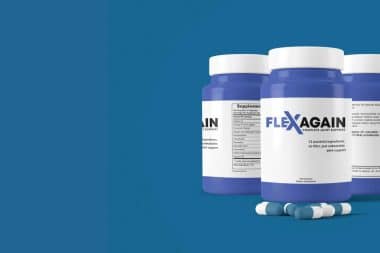A Pre-Workout Supplement is a dietary formula composed of multiple ingredients that focus on boosting your energy. It also enhances your routine’s effectiveness, improves focus, and lessens fatigue.
The majority of pre-workout supplements come in powder form, while others may come as capsules or bars. Their consumption can enhance muscular endurance without affecting or strengthening your moods.
Some additives give off harmful side effects, so make sure that you choose one that is not just beneficial but is also safe. Here are the best pre-workout supplements you can take before your training session for better and promising results.
When it comes to selecting the best one for you, there are a lot of things to consider such as your goals, the type of routines you do, and your body’s condition will help you choose your pre-workout ingredient.
All pre-workout supplements are designed for boosting energy, yet their effects vary on what ingredients they’re composed of. Some components increase strength or power, some focus on endurance, and some are for your muscles improvement.
Here are some of the most common pre-workout ingredients and what they’re good for:
Caffeine
Caffeine is a stimulant drug for the nervous system. It elevates alertness, helps burn fat, and improves pain tolerance.
The caffeine in your supplement gives you a quick energy boost, increases your maximal strength for high-intensity work, and can even reduce muscle soreness. Its benefits extend to the body’s recovery and adrenaline.
A dosage of 1.26 milligrams per pound of bodyweight is advised for people who have medium tolerance with caffeine intake. Having the supplement 30-60 minutes before your training session will give better and maximized results.
Excessive intake or improper doses can lead to increased blood pressure, impaired sleep, and palpitation. Most additives contain the same amount of caffeine in 1-2 cups which won’t give you any side effects. So remember not to drink or eat anything that contains caffeine throughout the day since you’ve already consumed the maximum amount.
Additionally, if you are naturally sensitive to caffeine or are working out in the evening, you can find pre-workout options without caffeine so you don’t mess up your sleep patterns.
Creatine
Creatine is a molecule in the cells that is important for energy production. It focuses on increasing muscular strength better than any other pre-workout ingredient.
Your muscles already have creatine in them, and when creatine is taken as a supplement, it results in your muscles creating more energy for improved strength, endurance, and increased muscle mass.
A recommended dose is 3-5 grams a day. It’s best to split the amount into two servings for constant energy.
When it comes to creatine, proper dosage and time are important. Stomach pain, diarrhea, and muscle cramping are some of the side effects that creatine can cause when taken improperly. And since creatine makes your muscles draw water, too much of it can lead to dehydration.
Beta-Alanine
Beta-Alanine is an amino acid that increases the amount of high-intensity work you can do and helps fight muscle fatigue at the same time.
High-intensity exercises can lead to acidity building up in your body, this will lead to muscle fatigue and reduced performance. As a supplement, beta-alanine prioritizes in increasing your tolerance for you to make the most of your routine.
Yet, it needs to be taken consistently for 2-3 weeks in order for the results to appear. You can take it in small doses throughout the day since it doesn’t really need to be taken right before your routine.
The suggested dosage of Beta-alanine is 4-6 grams a day split into many portions. Too much of this can result in its side effect which is a tingling feeling on your skin that will disturb your routine.
Citrulline
Citrulline is an amino acid that increases blood flow and supplies your muscles with the oxygen and nutrients needed for better performance.
When taken as an additive, citrulline helps in muscle fatigue prevention and increases your body’s levels. All of these focus on your muscles’ health instead of energy, growth, or strength.
Usually, 6.5 grams of L-citrulline taken 30 minutes before your exercise is recommended. Yet if you are engaging in intense training, it is possible to take an extra 3 grams intra-workout.
Even at doses like 15 grams, L-citrulline is still proven safe without any side effects. Yet excessive doses can lead to kidney damage if done regularly.
Sodium Bicarbonate
Sodium Bicarbonate is a chemical compound that is commonly known as baking soda.
Primarily, it fights acid build-up, but benefits such as reduced fatigue and enhancing exercise are also included with its intake.
The recommended dose for exercise performance is 300 milligrams per kilogram of bodyweight.
Its common side effect is an upset stomach or even diarrhea which can be prevented through slow consumption or splitting it into smaller portions.
BCAAs
These are branched-chain amino acids that are best in promoting muscle growth, weight loss, and reducing mental and physical fatigue. Other advantages offered by BCAA additives are improved endurance, reduced muscle soreness, and improved focus.
You can reap BCAA’s benefits by consuming 5-10 grams a day 60 minutes before training. For intense workouts, you can also drink another 5 grams. Doses vary depending on the tolerance of side effects.
BCAA has not been linked with any harmful side effects at all, yet its common side effects are nausea and headache.
Nitrate
Nitrate is a molecule found in vegetables but can also be found in the body. This additive is best for people who perform endurance activities such as running or cycling.
Nitrate supplements are linked to decreased muscle soreness, lowered blood pressure, and boosted performance. It is also beneficial for exercising since it decreases the amount of oxygen your body needs during your routine.
The optimal dose of nitrate is 6-13 milligrams per kilo of body weight. Nitrate from vegetables is safe to consume at any dose, yet nitric oxide is only safe in proper doses.
Some side effects of nitrate are stomach discomfort and diarrhea. Some Nitrate supplements that have a huge amount of beetroot extract can also color your waste red which is completely harmless.
Ingredients to Avoid
Yohimbe
Yohimbe is an active compound found in the evergreen tree, it was used as a treatment for cough and fever.
Yohimbe as a pre-workout supplement is dangerous because of its numerous side effects. Most of its claims have been unproven and this drug has also been banned in some countries. Side effects such as insomnia, nausea, dizziness, increased heartbeat, and even anxiety have been associated with Yohimbe.
Acesulfame Potassium (Ace-K)
Acesulfame potassium is an artificial sweetener that works to stimulate receptors of the tongue. This is very common in pre-workout supplements and is something to avoid at the same time.
Multiple studies and tests show that it is a potential carcinogenic and no tests were done to prove its safety. It adds zero value to your body nor does it give off any benefits.
Methyl-Synephrine
Methyl-synephrine is not a dietary supplement. It isn’t a vitamin, herb, mineral, or any beneficial compound either.
It has been linked to side effects such as irregular heartbeats, palpitations, increased blood pressure, and much more. It is a danger for people with heart disease histories and is unsafe when taken as a supplement for weight loss.
Reminders
Remember that a pre-workout supplement can be harmful when taken in the wrong dosages. Also, make sure that you’re getting a balanced diet, plenty of water, and sufficient sleep.
If your supplement is in a pill or capsule form, never drink it on an empty stomach. Side effects such as a belly ache can disturb your workout routine. Never take it right before the training, it’s best to have it 30-60 minutes before you engage in your routine for the best effect.








Reply